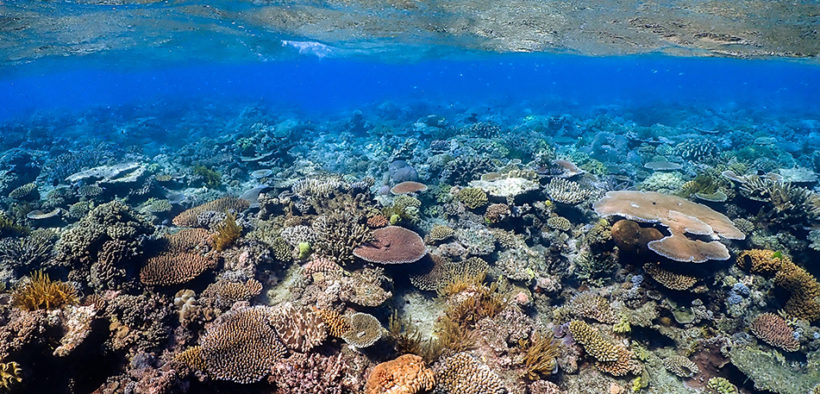Environmental enterprise Greening Australia has warned that the 2025 Great Barrier Reef water quality targets are at high risk of not being met based on current government funding – with no new commitments in the recent Federal Budget.
An Australian Government funded costings report released in 2019 revealed that a total of $4 billion was needed to meet the agreed targets for sediment and nutrient pollution cuts – but less than a quarter of this has been committed by governments for the next five years.
Greening Australia’s Reef Aid Program Director Dr Lynise Wearne said: “Without a major investment boost, Australian governments will not meet their commitment to provide the Reef with clean water by 2025.”
The World Heritage Committee meets this July to review Australia’s performance for managing the Outstanding Universal Values of the Great Barrier Reef, with water quality and adequate investment expected to be key factors.
“Australian and Queensland governments provide vital support to the Reef, but we unfortunately can’t rely on this alone to reach the water quality targets required to give the Reef its best chance of survival as it battles the effects of climate change.”
“There is a real opportunity for investors, both philanthropic and corporate, to provide critical funding to help protect the Reef. New market-based solutions like carbon or Reef Credits now offer viable, ongoing financial incentives to make this a reality, and scale-up the on-ground actions to cut Reef pollution,” said Dr Wearne.
Celebrating the five-year anniversary of its Reef Aid program, Dr Wearne says Greening Australia has prevented over 22,000 tonnes of sediment from reaching the Great Barrier Reef in the last five years by restoring wetlands and rebuilding eroding gullies. As the program has evolved, Greening Australia has worked closely with government, business, foundations, communities, researchers, Traditional Custodians and philanthropists to bring projects to life.
“Through innovative science and strong partnerships on the ground, we’ve been able to make significant progress in the last five years, raising over $35 million in investment from government, philanthropists and businesses, and restoring 1,750 hectares of gully and wetland areas – equivalent to the size of 875 Melbourne Cricket Grounds,” she says.
Greening Australia plans to scale up its operations to achieve 20 per cent of the overall Reef 2050 Plan pollution reduction targets by 2030 – largely by attracting more private finance.
With nutrient pollution identified as an increasing risk to Reef water quality alongside sediment, Greening Australia is also expanding its Reef Aid program to address the issue, aiming to prevent 724 tonnes of dissolved inorganic nitrogen (DIN) from reaching the Reef by 2030, in addition to preventing 400,000 tonnes of sediment run-off.
Projects will focus on high priority areas including the Wet Tropics to address nutrient pollution, and the Burdekin River and Fitzroy River catchments for sediment pollution.
Greening Australia CEO Brendan Foran said around $289 million will be required to achieve Greening Australia’s 2030 targets for improving water quality on the Reef.
“We’ve set our targets, and they are intentionally ambitious, we are committed to playing a key role to deliver the water quality the Reef needs to rebuild its health.”
“We know the solutions that can deliver big cuts to water pollution. We must collaborate for impact, working together to build the projects and attract the investment needed to give the Great Barrier Reef its best chance of survival,” he said.
Paulo Rizal is a content producer for Third Sector news. He has working experience in journalism, SEO, and social media marketing.
































































































































































